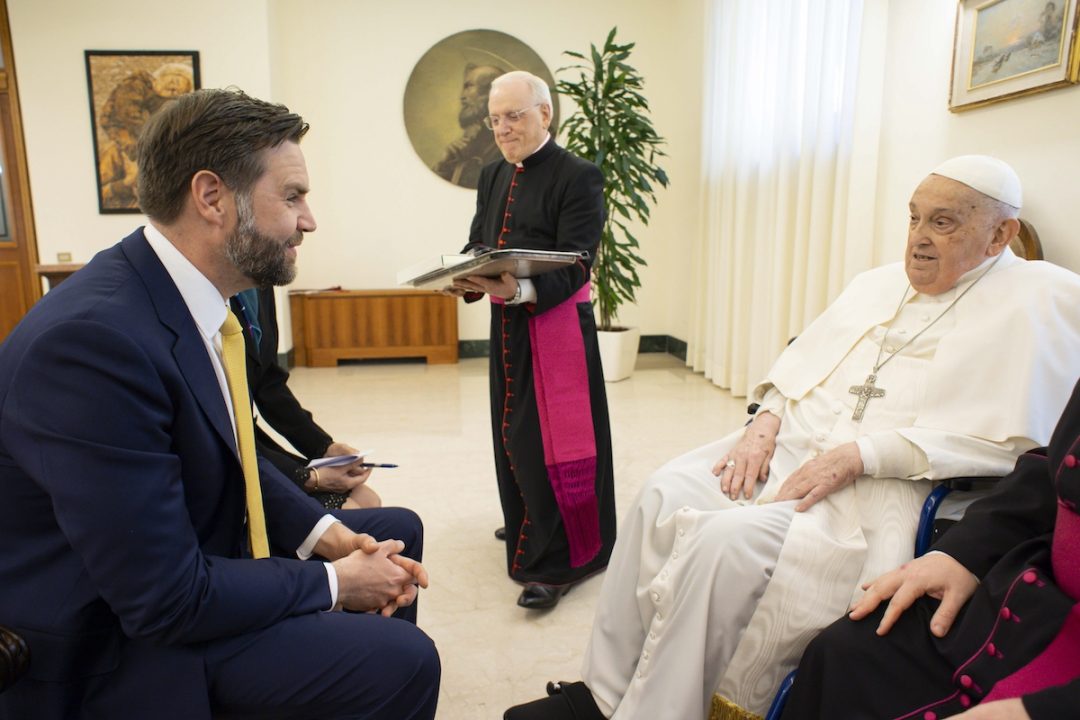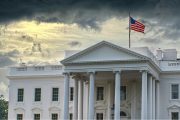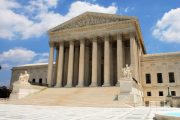
Just hours before he was about to breathe his last, the late Pope Francis met with Vice President J.D. Vance. The two exchanged the customary pleasantries, after which the 88-year-old pontiff unbosomed himself of a not-so-subtle dig at the Trump administration and those who oppose mass migration.
During his Urbi et Orbi address yesterday, Pope Francis reminded listeners of just “how much contempt is stirred up at times towards the vulnerable, the marginalized and migrants.”
But the pope’s expression of concern about “contempt” for “migrants” was rather mild compared to what he has said about immigration before. And much of that had nothing to do with Catholic teaching, but instead sympathized with what other bishops say is a mass invasion of the West with the goal of destroying its civilization.
Indeed, Pope Francis’ remarks on migration and immigration, and those of the American Catholic bishops, strongly suggest that open borders is the only just public policy of a nation beset by the invasion.
That is false.
Francis Remarks
Before his remark on Sunday, the most recent shot at the Trump administration showed in the pope’s letter to the mostly far-left U.S. Catholic bishops:
I have followed closely the major crisis that is taking place in the United States with the initiation of a program of mass deportations.
The rightly formed conscience cannot fail to make a critical judgment and express its disagreement with any measure that tacitly or explicitly identifies the illegal status of some migrants with criminality. At the same time, one must recognize the right of a nation to defend itself and keep communities safe from those who have committed violent or serious crimes while in the country or prior to arrival. That said, the act of deporting people who in many cases have left their own land for reasons of extreme poverty, insecurity, exploitation, persecution or serious deterioration of the environment, damages the dignity of many men and women, and of entire families, and places them in a state of particular vulnerability and defenselessness.
This is not a minor issue: an authentic rule of law is verified precisely in the dignified treatment that all people deserve, especially the poorest and most marginalized. The true common good is promoted when society and government, with creativity and strict respect for the rights of all — as I have affirmed on numerous occasions — welcomes, protects, promotes and integrates the most fragile, unprotected and vulnerable. This does not impede the development of a policy that regulates orderly and legal migration. However, this development cannot come about through the privilege of some and the sacrifice of others. What is built on the basis of force, and not on the truth about the equal dignity of every human being, begins badly and will end badly.
Last year, during his General Audience on August 28, 2024, the pope went further.
“It must be said clearly,” he said, “there are those who work systematically and with every means possible to repel migrants — to repel migrants. And this, when done with awareness and responsibility, is a grave sin.”
Many Catholic bishops think much the same way. American immigration law “divides families,” a bishop once said. Another celebrated Holy Mass at the Southwest border and distributed Holy Communion to communicants through a border barrier. The same bishops, by the way, refuse to withhold communion from pro-abortion Catholic lawmakers.
Catholic Teaching
The part of black-letter Catholic teaching neither the pope nor the bishops say much about includes nothing about deportations or any other tough immigration policy being a “grave sin.”
The Church’s official catechism and bishops themselves have always recognized a nation’s right to control its borders. While Pope Francis paid lip service to that principle in his letter to the bishops, he never emphasized it. And he never discussed the “grave sin” of endangering the lives of children by dragging them across perilous migration routes. Nor did he discuss the sin of lying under oath to public authorities about one’s immigration status, or lying to unlawfully enlist in public benefits, a form of theft. Instead, the pope and American bishops vociferously oppose President Donald Trump’s immigration policies.
The bishops recently called Trump’s “sweeping generalizations” about illegal aliens an “affront to God,” while the pope averred in an encyclical that “this way of thinking and acting is unacceptable.”
“The more prosperous nations are obliged, to the extent they are able, to welcome the foreigner in search of the security and the means of livelihood which he cannot find in his country of origin,” the catechism says (emphasis added). It continues:
Public authorities should see to it that the natural right is respected that places a guest under the protection of those who receive him.
Political authorities, for the sake of the common good for which they are responsible, may make the exercise of the right to immigrate subject to various juridical conditions, especially with regard to the immigrants’ duties toward their country of adoption. Immigrants are obliged to respect with gratitude the material and spiritual heritage of the country that receives them, to obey its laws and to assist in carrying civic burdens.
For their part, the U.S. bishops put it this way:
While individuals have the right to move in search of a safe and humane life, no country is bound to accept all those who wish to resettle there. By this principle the Church recognizes that most immigration is ultimately not something to celebrate. Ordinarily, people do not leave the security of their own land and culture just to seek adventure in a new place or merely to enhance their standard of living. Instead, they migrate because they are desperate and the opportunity for a safe and secure life does not exist in their own land. Immigrants and refugees endure many hardships and often long for the homes they left behind. As Americans we should cherish and celebrate the contributions of immigrants and their cultures; however, we should work to make it unnecessary for people to leave their own land.
Because there seems to be no end to poverty, war, and misery in the world, developed nations will continue to experience pressure from many peoples who desire to resettle in their lands. Catholic social teaching is realistic: While people have the right to move, no country has the duty to receive so many immigrants that its social and economic life are jeopardized. [Emphasis added throughout.]
Some Recognize the Truth
Some Catholic bishops recognize the truth. In January, Bishop Michael Burbidge of the Diocese of Arlington, Virginia, said:
Catholic teaching does not support an open border policy, but rather emphasizes a common sense approach where the duty to care for the stranger is practiced in harmony with the duty to care for the nation.
Bishop Athanasius Schneider called what is occurring in Europe an invasion:
We are witnessing an invasion. They are not refugees, no. This is invasion, [the] mass Islamization of Europe. This is a global, political agenda by the powerful of the world to destroy Europe culturally and religiously, to destroy Christianity, ultimately, in Europe, with the help of the massive Islamic population.
“Those who use the Bible to justify mass immigration are bewitched,” Cardinal Robert Sarah has averred.
In December, the Vatican cracked down on those entering the city illegally. Fines of up $25,000 and prison sentences of up to four years are the penalty.




